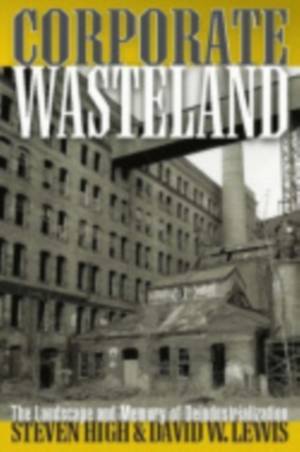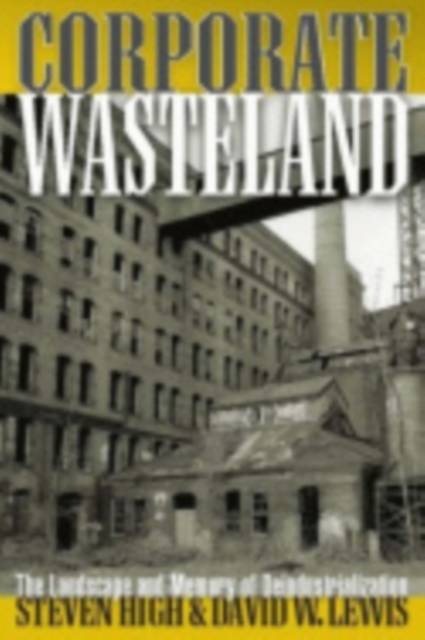
- Afhalen na 1 uur in een winkel met voorraad
- Gratis thuislevering in België vanaf € 30
- Ruim aanbod met 7 miljoen producten
- Afhalen na 1 uur in een winkel met voorraad
- Gratis thuislevering in België vanaf € 30
- Ruim aanbod met 7 miljoen producten
Corporate Wasteland
The Landscape and Memory of Deindustrialization
Steven High, David W LewisOmschrijving
Deindustrialization is not simply an economic process, but a social and cultural one as well. The rusting detritus of our industrial past--the wrecked hulks of factories, abandoned machinery too large to remove, and now-useless infrastructures--has for decades been a part of the North American landscape. In recent years, however, these modern ruins have become cultural attractions, drawing increasing numbers of adventurers, artists, and those curious about a forgotten heritage.Through a unique blend of oral history, photographs, and interpretive essays, Corporate Wasteland investigates this fascinating terrain and the phenomenon of its loss and rediscovery. Steven High and David W. Lewis begin by exploring an emerging aesthetic they term the deindustrial sublime, explaining how the ritualized demolition of landmark industrial structures served as dramatic punctuations between changing eras. They then follow the narrative path blazed by urban spelunkers, explorers who infiltrate former industrial sites and then share accounts and images of their exploits in a vibrant online community. And to understand the ways in which geographic and emotional proximity affects how deindustrialization is remembered and represented, High and Lewis focus on Youngstown, Ohio, where residents and former steelworkers still live amid the reminders of more prosperous times. Corporate Wasteland concludes with photo essays of sites in Michigan, Ontario, West Virginia, and Pennsylvania that pair haunting images with the poignant testimonies of those who remember industrial sites as workplaces rather than monuments. Forcing readers to look beyond nostalgia, High and Lewis reinterpret our deindustrialized landscape as a historical and imaginative challenge to the ways in which we comprehend and respond to the profound disruptions wrought by globalization.
Specificaties
Betrokkenen
- Auteur(s):
- Uitgeverij:
Inhoud
- Aantal bladzijden:
- 204
- Taal:
- Engels
Eigenschappen
- Productcode (EAN):
- 9780801474019
- Verschijningsdatum:
- 15/12/2007
- Uitvoering:
- Paperback
- Formaat:
- Trade paperback (VS)
- Afmetingen:
- 154 mm x 227 mm
- Gewicht:
- 335 g

Alleen bij Standaard Boekhandel
Beoordelingen
We publiceren alleen reviews die voldoen aan de voorwaarden voor reviews. Bekijk onze voorwaarden voor reviews.











